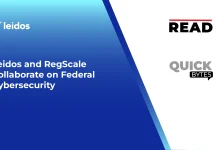E.ON SE, Intertrust, JERA, and Origin Energy announced the founding of the Trusted Energy Interoperability Alliance, (TEIA), to develop and promote open technology standards for energy devices, data interoperability and security for the global energy industry ecosystem.
As the energy industry moves toward relying on digital infrastructure, including IoT devices, distributed data management systems and Artificial Intelligence (AI), the need for consistent security and authentication between hardware and software systems is critical. Energy companies procure connected devices and software from different vendors, but often find themselves with siloed systems and security gaps.
This creates a massive operational burden by increasing development and operating costs, and introduces security vulnerabilities, which can be exploited by malicious actors and materially impact operating costs and performance. These issues increase energy prices, and complicate energy companies’ obligations to meet decarbonization goals and data-related regulatory requirements for data privacy, residency and the upcoming EU Data Acts, and their emerging international counterparts.
TEIA’s goal is to deliver standards for secure interoperability to solve these problems, enabling the entire energy value chain, from conventional and alternative fuels, renewable and conventional generation, to edge energy systems and devices for commercial and residential applications. TEIA-compliant software and devices, even from competing manufacturers, will work together securely, ensuring smooth, trusted interoperability. The TEIA standards organization welcomes participation from all companies and organizations in the digital energy ecosystem, including device manufacturers, software vendors, and energy companies.
Standardizing security formats, application interfaces, and compliance requirements for energy IoT hardware and software is crucial for creating a level playing field that addresses common challenges. By adopting common, open specifications, software and hardware vendors can reduce costs and security burdens while providing operators with interoperable technologies that ensure consistent security. Standards also bring clarity to Intellectual Property matters as value chains evolve from proprietary solutions to stack compositions with multiple component suppliers. Ultimately, this leads to lower operating costs for all stakeholders and translates into savings for energy consumers.
Leaders at the TEIA Founding companies expressed their support for the initiative.
“As with the consumer electronics industry, openness and choice are crucial for an industry as mission critical as energy,” said E.ON SE’s Chief Strategy & Innovation Officer, Thomas Birr. “The TEIA standard will reduce time to market and create an open environment for cost-effective, standardized and secure energy solutions that will both promote decarbonization and benefit energy customers.”
SOURCE: Businesswire




